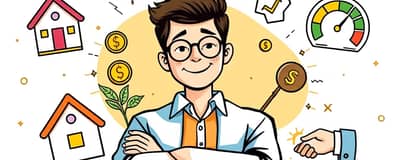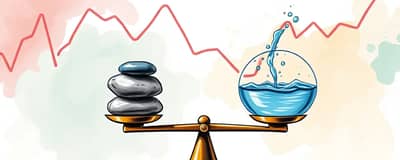Overwhelmed by multiple bills and high interest rates? You're not alone. In 2025, 42% of Americans cite debt reduction as their top financial priority, and many are exploring consolidation as a path to relief and control.
By uniting several payments into one, you can simplify your monthly obligations and focus on a clear timeline to becoming debt-free. Whether you’re weighed down by credit card balances or juggling various loans, understanding consolidation is key.
Understanding Debt Consolidation Today
In the current economic climate, with credit card APRs holding above 20% and the Federal Reserve pausing rate cuts, consolidating debt into a fixed-rate loan can be a powerful tool. When you pivot from revolving credit to a structured installment plan, you protect your future from fluctuating interest.
For qualified borrowers, rates between 7-12% represent significant savings over high APRs, accelerating progress and reducing overall cost.
Who Should Consider Consolidation?
Before jumping in, assess whether debt consolidation aligns with your financial profile. Ideal candidates commonly share these characteristics:
- Total debt between $10,000 and $50,000
- Credit score above 680
- Debt-to-income ratio below 45%
- Stable or strong cash flow for regular payments
If this describes your situation, consolidation could transform how you manage and repay debt.
Main Types of Consolidation Options
There are several vehicles to consolidate debt, each with unique benefits and considerations:
- Personal Loans: One fixed payment replaces multiple debts, often at a lower interest rate.
- Balance Transfer Cards: Temporarily 0% APR offers relief but require full payoff before the promotional period ends.
- Home Equity Loans: Leverage property as collateral, unlocking cash to pay off debts—but with added risk.
- Debt Management Programs: Credit counseling agencies negotiate rates and payments on your behalf.
Key Benefits of Consolidating Debt
When executed properly, consolidation delivers both financial and emotional relief:
- One convenient monthly payment instead of multiple due dates
- Lock in a lower rate and reduce interest expenses
- Shorten payoff period to 3-4 years, compared to 5-7 years
- Alleviate stress and simplify budgeting
- Potentially boost your credit score over time
These advantages combine to create a clear, manageable repayment plan that fosters confidence and momentum.
Assessing the Credit Score Impact
It’s natural to worry about how consolidation affects your credit. Initially, hard inquiries and new accounts may cause a temporary dip. However, as you make punctual consolidated loan payments, your score often rebounds and eventually surpasses previous levels.
Eliminating high-utilization credit cards lowers one of the biggest FICO factors—credit utilization—while establishing consistent payment history, which is crucial for long-term improvement.
Comparing Debt Relief Methods
Consolidation isn’t the only path to financial health. Below is a comparison of common approaches:
Risks, Costs, and When to Proceed with Caution
While consolidation can be transformative, it’s not risk-free. Avoid if your debt is minimal, your DTI ratio is too high, or if you lack the discipline to curb future spending.
Home equity options introduce the risk of foreclosure, and personal loans may carry origination fees. Always evaluate the total cost and ensure you’re not prolonging debt by extending the term unnecessarily.
Timing and Economic Considerations for 2025
With the Federal Reserve pausing rate cuts and credit card APRs stagnant, locking in a fixed-rate consolidation loan today can guard against future hikes.
As Americans make reducing debt their primary financial goal for the year, timing your consolidation strategy now could maximize benefits before market conditions shift.
Charting a Path to Financial Freedom
Debt consolidation represents more than a financial maneuver—it’s a critical step toward regaining control of your life. By choosing the right method, adhering to a disciplined repayment plan, and staying mindful of potential pitfalls, you can accelerate your journey toward debt-free living.
Take charge of your finances today, explore your consolidation options, and transform debt from a source of dread into a manageable milestone on the road to prosperity.














